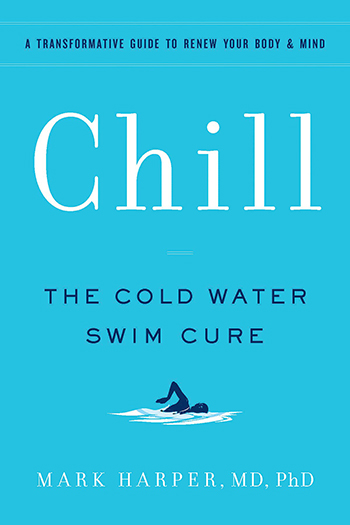Have you ever driven along the coastline, or walked by a local pond or lake and thought about taking a dip, but felt hesitant about swimming in what you know is cold water? My guest today, who argues that cold water swimming is one of the very best things you can do for your mental and physical health, will inspire you to finally take the plunge. His name is Dr. Mark Harper and he’s an anesthesiologist and the author of Chill: The Cold Water Swim Cure.
Have you ever driven along the coastline, or walked by a local pond or lake and thought about taking a dip, but felt hesitant about swimming in what you know is cold water? My guest today, who argues that cold water swimming is one of the very best things you can do for your mental and physical health, will inspire you to finally take the plunge.
His name is Dr. Mark Harper and he’s an anesthesiologist and the author of Chill: The Cold Water Swim Cure. We begin our conversation with how Mark’s research into the prevention of hypothermia during surgery led him to investigate the benefits of cold water exposure in managing the body’s overall stress response. We discuss the effect cold water has on the body, and the potential mental and physical benefits this effect can have, from reducing inflammation, to reducing depression caused by inflammation, to improving conditions from diabetes to migraines. We get into how long you need to be in the water to get these benefits, and the temperature the water needs to be, which may not be as cold as you think, and potentially makes, depending on where you live, cold water swimming viable as a year-round practice. Mark also explains how to get started with cold water swimming, and do it safely and effectively, including why you should start in the summer, and how best to prepare your body before you get in the water and recover after you get out of it. We end our conversation with whether or not you can get the same benefits of cold water swimming from taking an ice bath or cold shower.
